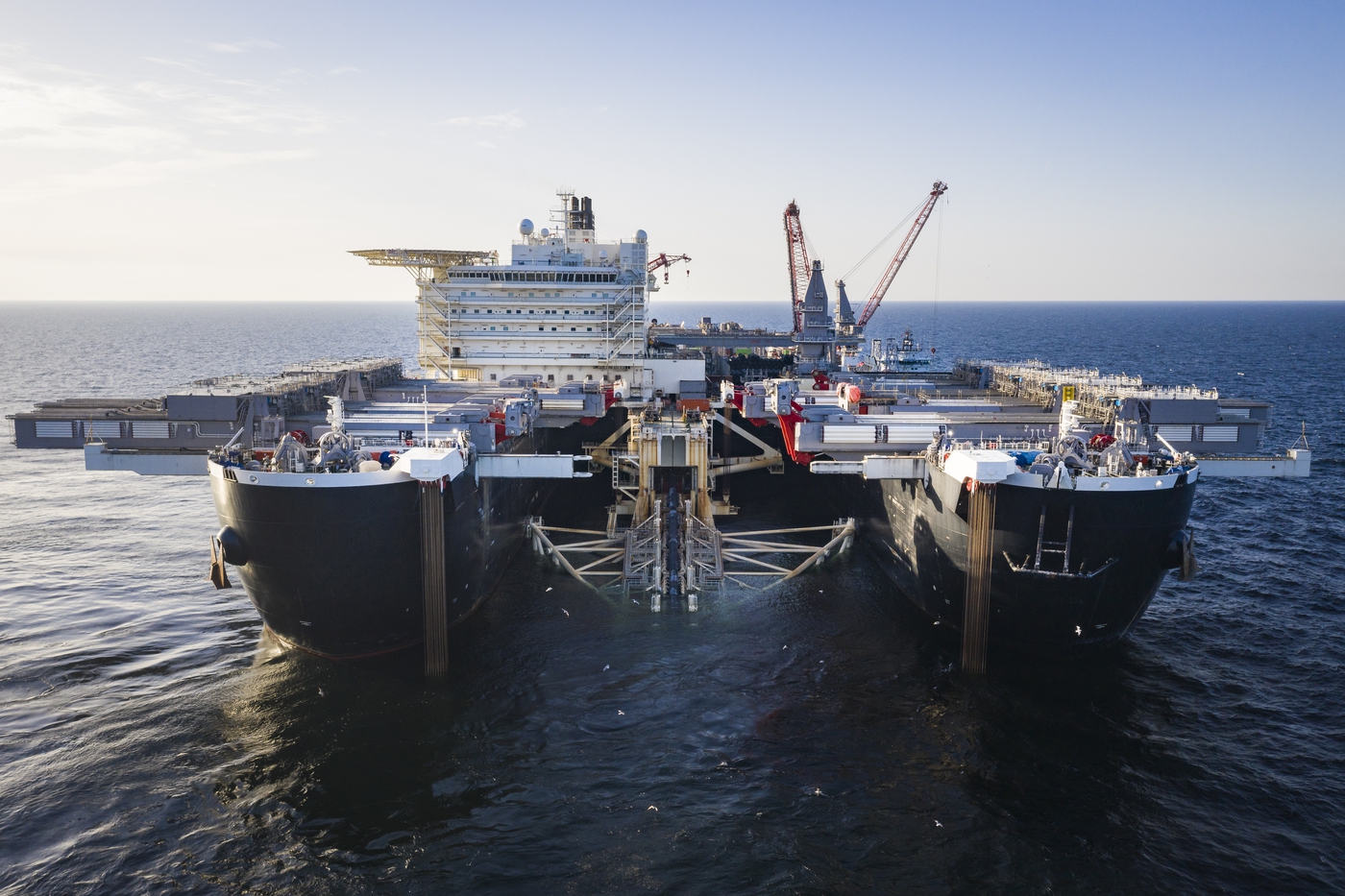Germany Denies EU Waiver for Nord Stream 2 Pipeline
FRANKFURT (Reuters) — Germany’s energy regulator on Friday declined to grant a waiver of European Union gas directives to the operators of the Nord Stream 2 pipeline, dealing a fresh blow to the project to carry gas from Russia to Germany under the Baltic Sea.
Nord Stream 2, designed by Russia’s Gazprom to increase direct shipments to Europe, is far behind schedule and has faced political opposition from Washington, as well as from Ukraine and Poland through whose territory Russian gas is shipped to consumers in western Europe.
Germany’s pipeline regulator, the Bundesnetzagentur, said the project was not exempt from EU unbundling rules that require separate operators for the production, transport and distribution of energy for the section that runs through German territory.
A German Economy Ministry spokesman declined to comment on the authority’s decision.
Germany’s relations with Moscow are already under strain after Chancellor Angela Merkel this week told legislators “hard evidence” had been found that Russian agents were behind a 2015 hacking attack on parliament.
Merkel said the attack, in which legislators’ e-mail accounts, including hers, were plundered, was part of a pattern of Russian attacks designed to disorientate adversaries. Russia denied any involvement.
The regulator said the Nord Stream 2 consortium - which also includes Uniper, Wintershall-Dea, Royal Dutch Shell, OMV and Engie - did not qualify for an exemption because the pipeline had not been completed by May 23, 2019.
The dispute over regulation does not affect the ongoing construction of the pipeline but may add to operating challenges.
Nord Stream 2 is expected to open around early 2021 after numerous delays.
A Russian pipe-laying vessel, Academic Cherskiy, is ready to travel from near Kaliningrad to Bornholm and complete the remaining 160 km (100 miles) after its predecessor Allseas had to abandon work because of a threat of U.S. sanctions.
The consortium, whose five Western partners put up 50% of the finance for the pipeline, said that although not physically complete, the project had been economically functional, with billions of euros of investments made in good faith.
It said it has a month to evaluate the decision and to consider further action and that the definition of completed can be contested as clashing with fundamental rights in EU law.
Before the latest German ruling, it had asked the European Court of Justice to nullify the EU regulation that could prevent it operating and called for arbitration under the international energy charter that protects investments.
Gas market analyst Wolfgang Peters of the GasValueChain company said Europe needed additional gas at competitive prices, as its demand jumped by nearly 100 billion cubic metres over the last four years, while its own supplies declined.
This volume is roughly equivalent to NS 2 and its forerunner Nord Stream 1, which opened in 2011, combined.
Friday’s ruling could drive up costs for the consortium and cause it more delays as it implies it may have to set up a transport operating company and seek bids from third parties to participate in gas auctions.
Related News
Related News

- Enbridge Plans 86-Mile Pipeline Expansion, Bringing 850 Workers to Northern B.C.
- Intensity, Rainbow Energy to Build 344-Mile Gas Pipeline Across North Dakota
- U.S. Moves to Block Enterprise Products’ Exports to China Over Security Risk
- Strike Pioneers First-of-Its-Kind Pipe-in-Pipe Installation on Gulf Coast with Enbridge
- 208-Mile Mississippi-to-Alabama Gas Pipeline Moves Into FERC Review
- U.S. Pipeline Expansion to Add 99 Bcf/d, Mostly for LNG Export, Report Finds
- A Systematic Approach To Ensuring Pipeline Integrity
- 275-Mile Texas-to-Oklahoma Gas Pipeline Enters Open Season
- LNG Canada Start-Up Fails to Lift Gas Prices Amid Supply Glut
- Kinder Morgan Gas Volumes Climb as Power, LNG Demand Boost Pipeline Business





Comments